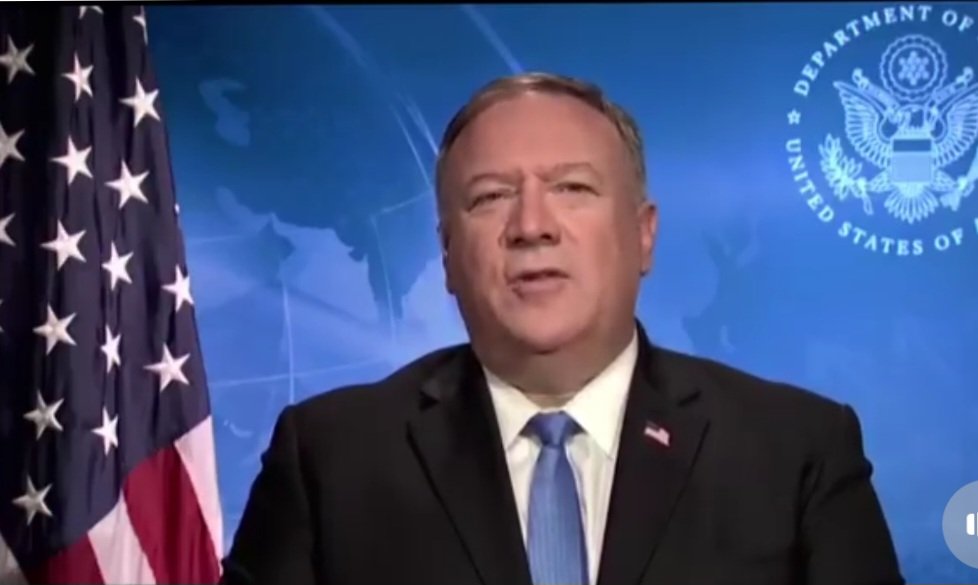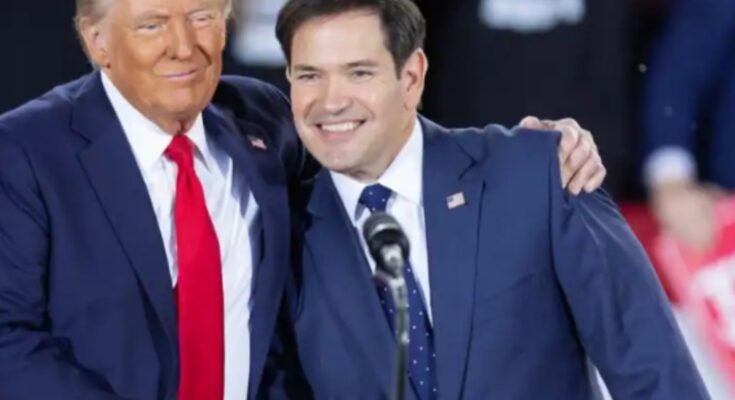Who is the New Secretary of State in the Donald Trump Administration?
The post of the United States Secretary of State is one of the most influential in the government. This person oversees the nation’s foreign relations, representing it on diplomatic matters, and advises the President on all matters relating to international relations. During the administration of President Donald Trump, there have been a series of massive changes with regard to the position of Secretary of State. It started with the CEO of ExxonMobil, Rex Tillerson, and then took a complete shift when Mike Pompeo-a career politician and military man who was long involved in U.S. foreign policy-took over the position.
This paper will explore identity, qualifications, and the impact of Mike Pompeo as Secretary of State during Donald Trump’s presidency, covering his rise into power, his time in office, and the contribution he made in shaping U.S. foreign policy during a period of intense political and international change.
The Role of the Secretary of State
It is necessary to understand the importance of the position of Secretary of State before entering into the specifics related to Mike Pompeo. To this effect, the Secretary of State is the chief diplomatic officer of the United States government, who manages and directs the State Department, deals with foreign policy issues, and represents the United States internationally. This role comprises negotiating treaties, handling crises, nurturing diplomatic relationships, and advising the President on the geopolitical environment.
In context, in an administration run by Trump, the Secretary of State was to play a central role in managing U.S. foreign relations during an era of recasting alliances, difficult international environment, and changing U.S. foreign policy priorities.
Early Life and Career of Mike Pompeo

Michael Richard Pompeo was born on December 30, 1963, in Orange, California. His family made service and commitment to one’s country the top priorities while he was growing up, so a career of public service was an easy path to follow. He graduated first in his class from the United States Military Academy at West Point in 1986. U.S. Army, with further promotion to captain, laid the foundation for further work in politics and diplomacy.
After the Army, Pompeo attended Harvard Law School, graduating with a juris doctor in 1994. During these studies, he developed an interest in law, business, and politics. He was first a lawyer in the private sector at law firms and in the business world; this included dealings in aerospace and defense.
Until the political achievement, Pompeo had won his first election as U.S. Representative for Kansas’ 4th congressional district back in the year 2010. When in the House of Representatives, he quickly seemed to be one of the most forceful conservative voices on many national security issues, fiscal responsibility, and foreign policy. His time in the House included service on the House Intelligence Committee and the Energy and Commerce Committee-hands-on positions that would give him important experience to draw upon in later years in his handling of foreign policy matters.
Appointing Pompeo as CIA Director
In January 2017, President Donald Trump nominated Pompeo to the post of Director of the Central Intelligence Agency. That was the turning point in his rise to national prominence. As Director of the CIA, Pompeo was fully committed to the enhancement of intelligence capabilities, building stronger ties with foreign intelligence agencies, and the proliferation of emerging threats in terrorism, cyber-attacks, and the activities of rogue states.
He was vocal regarding aggressive counterterrorism policies, and he was further perceived to support the use of enhanced interrogation techniques-a view shared by President Trump on issues of national security. While serving as CIA director, Pompeo made a conscious effort to be seen as an eager and dutiful ally to Trump; Pompeo’s leadership at the agency focused primarily on intelligence reform and rebuilding the CIA’s relationships with foreign intelligence services.In addition to his policy work, Pompeo was the leading voice and front man of the Trump administration on issues of global intelligence and security, regularly entering into the media fray to defend the President’s foreign policy decisions.
Pompeo as Secretary of State
President Donald Trump announced on March 13, 2018, that he was replacing Secretary of State Rex Tillerson with Mike Pompeo. The move came after months of speculation about Tillerson’s future in the Trump administration. Tillerson was a former oil executive with little diplomatic experience, and frequently had clashed with President Trump on foreign policy issues in a sometimes tense, short tenure at the State Department.Most commentators viewed the appointment of Pompeo to the Secretary of State position as a means of bringing into the post an increasingly hard-line and ideologically matched figure, said to be best capable of moving forward with Trump’s “America First” foreign policy agenda. He moved through the confirmation process quickly and was sworn in during April 2018 by the Senate with a vote of 57-42.
Assuming the office, Pompeo inherited a crowded and often contentious foreign policy agenda. Indeed, the tenure of Pompeo as Secretary of State came with several crises unfolding across the globe, tension with North Korea, the continued fight in Syria, and growing concern over China’s rise and Russia’s attempt to challenge America’s supremacy in global affairs.
Highlights of Achievements and Challenges
North Korea Diplomacy
Arguably one of the most high-profile aspects of Pompeo’s time as Secretary of State was his involvement in the U.S.-North Korea negotiations. Pompeo took center stage in the organization of the historic 2018 summit between President Trump and North Korean leader Kim Jong-un. This summit, the first for a sitting U.S. President’s meeting with a North Korean leader, to which Pompeo played a key role in setting the stage for what then seemed possibly a breakthrough in nuclear disarmament talks.
At the same time, Pompeo’s diplomatic efforts with North Korea proved extremely challenging. Despite the effusive optimism from the summit, denuclearization did not move forward. Pompeo was criticized from some quarters as overly optimistic about the prospects for these talks. The collapse of subsequent negotiations-most notably after the 2019 summit in Hanoi-set Pompeo and the Trump administration considerably back.Despite this, engagement with North Korea on Pompeo’s part remained the cornerstone of his tenure as Secretary of State. A belief in the power of personal diplomacy and direct engagement with adversaries was essentially a mirror of Trump’s approach to foreign policy.
Iran and the Retreat from JCPOA
One more distinctive mark of Pompeo’s tenure was that under Trump, the nation pulled out of the so-called Joint Comprehensive Plan of Action or JCPOA, better known as the Iran nuclear deal. Pompeo had been among the most loud and consistent critics of the Iran deal, and he was the author of the “maximum pressure” campaign that the United States undertook against Iran to isolate it diplomatically and economically.
It was an Iran policy comprised of the re-imposition of severe economic sanctions that targeted, in particular, the significant exports of oil and finances of Iran, intended to drive the Iranian government to renegotiate the terms of the JCPOA or adjust its aggressive behavior in the region. Pompeo’s approach was diametrically opposite to the policy of the previous administration’s engagement and therefore raised tensions in the Middle East.
While Pompeo said the “maximum pressure” strategy was working to undermine the Iranian position, other critics said the strategy brought the U.S. closer to military conflict and fueled regional instability.
Relations with China and Russia
Pompeo also played a very important role in the standoff against what the Trump administration believed was China and Russia’s growing threat. Indeed, the U.S., under the helm of Pompeo, has gotten tougher on China on issues concerning trade, human rights, and the military in the South China Sea. Pompeo was a loud voice in support of holding back from Chinese aggression and pursuing a policy line that would contain China’s spread through global politics, which has gained momentum over the past few years.
Similarly, Pompeo led the U.S. against Russian influence, especially in what Russia did to Ukraine, interference in U.S. elections, and increased military presence in Europe. Under this strong stand he had of China and Russia, their goal fits in the broader picture brought forth by the Trump administration in trying to take U.S. foreign policy toward unilateralism away from multilateralism.
Legacy of Pompeo as Secretary of State
Mike Pompeo’s legacy as Secretary of State is complex-and often contradictory. On one hand, he is lauded for his loyalty to President Trump and commitment to forwarding the President’s “America First” foreign policy agenda. His efforts at negotiating with North Korea, confronting Iran, and challenging China and Russia marked his time in office. Leading America through friction and competition in these high-stakes international challenges, Pompeo reflected a deep-seated belief in American power and exceptionalism.
On the other side, Pompeo’s tenure was not free from controversies. According to critics, there was not much nuance in his approach to diplomacy; very often, his close alignment with President Trump diminished the overall effectiveness of U.S. foreign policy. Further, Pompeo’s role in the pullout from the Iran deal and his handling of the American response to the crisis in Venezuela were hotly debated.
However, Pompeo is one of the most influential figures in American foreign policy during the Trump administration, and his tenure as Secretary of State really took center stage in framing the international environment in times of great geopolitical turmoil.

